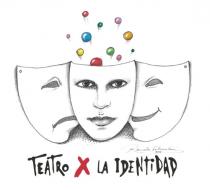Teatro x la identidad 1 Favorite
The Search for Identity in a Country of ‘Disappeared’
By Marcela Valente
‘Theatre for Identity’ is the theme of a novel undertaking in the Argentine capital, where 41 plays are being put on every Monday in 14 theatres.
The project was sponsored by a local human rights group, the Abuelas de Plaza de Mayo, made up of grandmothers seeking the children of their sons and daughters who were “disappeared” by the 1976-83 de facto military regime. Around 500 minors were kidnapped by the regime.
“We wanted the world of the theatre to speak out, to make the Abuelas’ search its own,” said actor and director Daniel Fanego, one of the driving forces behind the project.
The plays, many of which last just half an hour, will be put on every Monday, at an average of three plays per theatre. Fanego said ‘Theatre for Identity’ drew together “three generations in search of an identity”.
According to official figures, at least 9,000 people were forcibly disappeared by the Argentine dictatorship, although rights groups put the figure closer to 30,000.
The idea for the project emerged as a result of the unexpected popularity of the play ‘A propósito de la duda’ (‘And Talking of Doubts…’) last year.
The play, which was to be put on just five times, ended up being staged hundreds of times in theatres and clubs, on the streets and in city squares, due to popular demand.
‘A propósito de la duda’ tackled the question of young people who were born in captivity to political prisoners, kidnapped and raised by people who were somehow involved in the abduction and “disappearance” of their parents.
“The impact we had on the public was so strong that we decided to hold a contest to choose a new play,” said actress Valentina Bassi, who took part in last year’s project.
Bassi said the ‘Theatre for Identity’ project also went beyond all expectations. “We chose 41 plays from among many more” that were submitted, she explained.
The plays have been staged on a pro bono basis by both well-known and novice directors. The 14 theatres are also lending their stages free of charge on the traditional day off of theatre companies, which is Monday.
Abel Madariaga, the secretary of the Abuelas de Plaza de Mayo, told IPS that since “it is hard to reach the young”, the group decided “to sponsor a broad movement aimed at drawing a new public, not the generation of the disappeared, but that of their children”.
Since the 1970s, the Abuelas have been tirelessly searching for the children that were kidnapped, many of whom were born in clandestine torture centres, while others were abducted as small children along with their parents.
Some of the abducted children were killed, many were turned over to public institutions that put them up for adoption, while others were given to couples with links to the security forces, who raised them as their own. Of nearly 500 minors kidnapped by the security forces, 70 have been identified by the Abuelas.
The Argentine courts are currently investigating the kidnappings and illegal adoptions of children of political prisoners, and several senior military officers have been tried for kidnapping, “illegal appropriation” of children and forging public documents.
However, the court proceedings have failed to provide sufficient data to make it possible to identify the young people whose identities were changed. One of the achievements of the Abuelas was the creation, in the 1980s, of a National Genetic Databank containing blood samples from relatives of the disappeared. Any young person with doubts about their identity can undergo blood tests to determine their biological origins.
The effort began to provide results in the second half of the 1990s. The vice-president of the Abuelas, Alba Lanziloto, who found her grandson a few months ago, told IPS that the search has been facilitated by the fact that the children who went missing in the 1970s are now adults.
The Abuelas launched a hard-hitting publicity campaign two years ago in which artists from the same generation of the kidnapped youngsters invited anyone with doubts to visit the human rights group and find out if their parents were victims of the dictatorship.
The stories of kidnapped minors have also been portrayed in movies – including ‘The Official Story’, which won an Oscar for best foreign film – videos, novels, essays and paintings.
The faculty of graphic design at the public University of Buenos Aires, for instance, asked students to do their final projects on the Abuelas’ search for their grandchildren.
“We have 1,800 50 by 70-cm placards by graphic designers, focusing on the question of identity,” said Madariaga. “They have also made us stationery, envelopes, logos, buttons and other objects identifying our movement, as well as the posters for our campaigns.”
The human rights group’s next project is a contest for rock song lyrics, in which anyone under 26 can participate.
The involvement of the young generations in human rights activism picked up steam with the birth of a new rights group, known as HIJOS (sons and daughters), the acronym for ‘Hijos por la Identidad y la Justicia, contra el Olvido y el Silencio’ (Sons and Daughters for Identity and Justice, against Oblivion and Silence).
The group was created in the 1990s by children of the victims of forced disappearance who were reunited with their biological families, and by others who were left with grandparents or other relatives when their parents were abducted.
Like similar groups that have emerged in neighbouring Chile and Uruguay, HIJOS carries out a new form of protest, which consists of holding demonstrations outside the homes of former torturers and other human rights abusers, to make their identities known to the public.
-
-
Source: http://www.ipsnews.net/2001/04/arts-entertainment-theatre-argentina-the-...






